South Africa #206
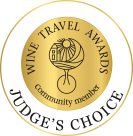
South Africa – Visit Our Winelands
Rich heritage, exceptional wine experiences, gastronomic discovery and a generosity of spirit that’s so prominent in all people and places, at the Southern-most tip of Africa. South Africa’s wine tourism offering is as diverse and captivating as its landscapes. With 23 unique wine routes spanning from the historic Cape Winelands to the coastal and inland regions, visitors are treated to an array of experiences that go beyond the glass. Each route offers a distinctive blend of world-class wines, picturesque settings, and warm hospitality. Whether it’s the lush valleys of Stellenbosch, the rugged beauty of the Cederberg, or the coastal charm of Hermanus, the country’s winelands invite exploration and discovery. Beyond wine, South Africa’s regional food scene is a feast for the senses. The country’s culinary offerings reflect a blend of cultures and traditions, resulting in a vibrant food landscape that complements its wine heritage. From farm-to-table experiences and fine dining in the Cape Winelands to authentic local flavours and street food in the smaller towns, there’s something to satisfy every palate. Many wine estates boast exceptional restaurants where chefs and winemakers collaborate to create harmonious pairings, showcasing local produce and South African flair.
A Journey of taste, tradition, and adventure
Experiences in the winelands are equally rich and varied. Visitors can indulge in vineyard picnics, guided cellar tours, and immersive tastings, as well as more adventurous activities such as hiking, cycling, and even safari-style game drives. The winelands also celebrate a strong sense of community and culture, with events, markets, and festivals offering insights into the local way of life. The spirit of ‘ubuntu’ – a philosophy of togetherness and generosity – is evident everywhere, adding a unique charm to every experience. In South Africa, wine tourism is not just about savouring fine vintages; it’s an invitation to experience the country’s natural beauty, cultural richness, and the stories woven into every vineyard and bottle. The winelands promise an unforgettable journey of taste, tradition, and timeless hospitality, leaving every visitor with a sense of connection and inspiration. New World wines with an old-wine story is the winning formula and where our own unique story comes to life.
≠hannuwa: A Philosophy Rooted in Harmony
Beyond the sun-kissed vineyards and scenic landscapes, South Africa’s winemaking ethos is encapsulated in the San word ≠hannuwa. The San people are the earliest, indigenous hunter gatherers of Southern Africa. ≠hannuwa is associated with good fortune, as in having enough to gather, this collective word suggests a life of harmony and plenty or success in sustaining life. This philosophy has been adopted by our wine producers, underscoring their holistic approach. It pledges to farm sustainably, protect biodiversity and foster a culture of respect among those who both cultivate the vines and craft the wines of South Africa. ≠hannuwa ensures that we’re all active custodians of the land, preserving it for future generations and safeguarding the rich heritage of our winelands.
A tapestry of ancient soils and biodiversity
The South African winelands boast some of the world’s oldest viticultural soils, aged over millennia and shaped by ancient geological events. The interplay between these ancient soils, majestic mountains, valley slopes and coastal influences has fostered a rich natural environment unparalleled in biodiversity. Nestled within the Cape Floral Kingdom, a UNESCO World Heritage Site, the winelands house over 9,500 plant species, 70% of which are exclusive to this region.
From a Natural World Wonder in Table Mountain, to the two oceans that meet at Cape Agulhas, the southernmost point of the African continent. The diversity of soils mirrors the diversity of climate and geography, offering an enchanting array of winemaking possibilities.
The options really are endless. This is already demonstrated in the flavour profiles which make a Sauvignon Blanc from Elim so different to one from Stellenbosch – or a Shiraz from Paarl so different to one from the Cederberg.
Renewal and Innovation: Crafting the future of wine
South Africa’s wine industry is in the midst of an inspiring transformation. Winemakers are pioneers, exploring new vine varieties and experimenting with clones. Recent years have witnessed over 40% of vineyards replanted, transitioning from volume production to noble cultivars and fine wines. Winemakers are experimenting with new varieties of vine, as well as new clones of existing varietals, such as Chardonnay and Cabernet Sauvignon.
As in other New World countries, viticulturists are hard at work matching vine varieties to soils and meso-climates in order to achieve the best results for the just over 93 000 hectares under vines. Vineyard life in South Africa is similar to Europe’s, although South Africa’s viticultural year begins in September. With Spring comes the signs of new life as the vines are just beginning to bud. Flowering usually follows in November and December, as the young grapes begin to swell and grow.
January in the Cape heralds the beginning of summer and as the temperatures increase, early grape varieties begin to ripen. The bulk of the harvest takes place in February and the sugar/acid ratio of the grapes is checked daily so that each variety is harvested at optimum ripens and mostly by hand – a busy but rewarding time for all with no shortage of comradery on display, despite the laden baskets and long days in full sun.
A noteworthy red variety, Pinotage, a cross between Pinot Noir and Hermitage (Cinsault), was created on our home soils as one of the many experimental cross blends and is now being cultivated locally on a fairly large scale. Noble varieties which have been cultivated increasingly in the past few years include Sauvignon Blanc and Chardonnay, which thrive in diverse soils and climates and produce top-class white wines, and Shiraz and Pinot Noir that reflect their own terroir.
At the forefront of sustainability initiatives, South Africa has also introduced a pioneering Sustainability Seal – a world-first that traces a wine’s journey from vine to bottle, ensuring both integrity and eco-friendliness. The nation leads the way in ethical trading, with initiatives such as WIETA, guaranteeing fair working conditions for agricultural employees. The Ethical Seal certifies reasonable working conditions, setting a global standard in ethical wine production.
South Africa’s winemaking narrative interlaces history, innovation, and sustainability, promising a rich tapestry of flavours, unique experience, and a commitment to a flourishing future for generations to come. Amidst these ancient soils and captivating landscapes, the country’s winemakers craft wines of South Africa that embody the essence of a diverse nation, beckoning wine enthusiasts on an odyssey of taste, tradition, and sustainability.

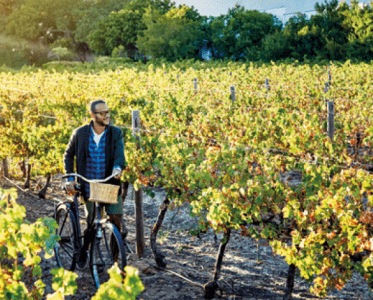

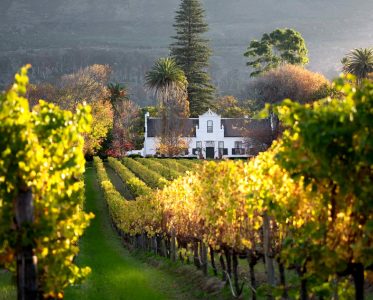
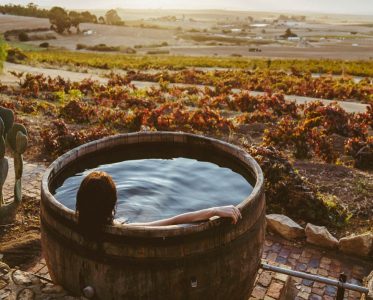
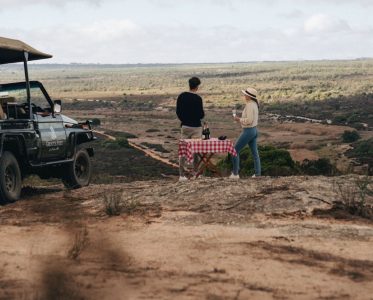
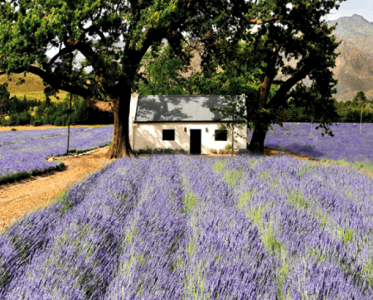
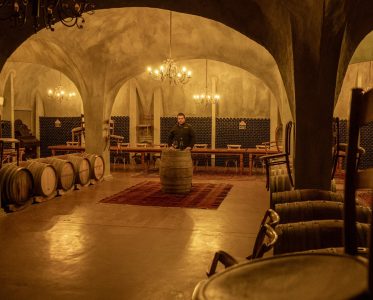
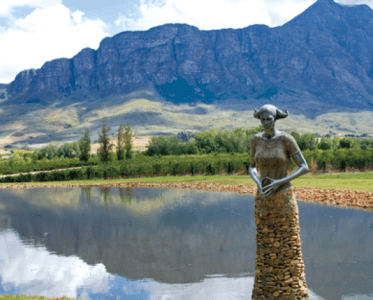

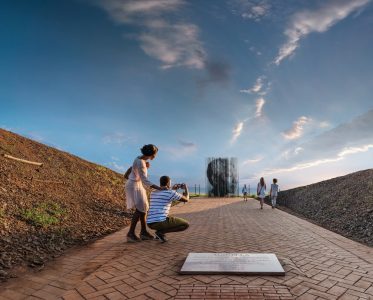

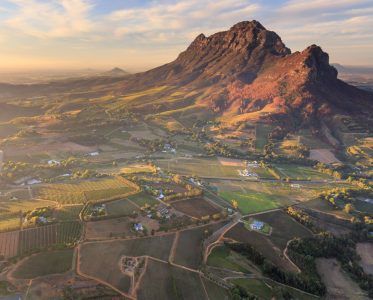
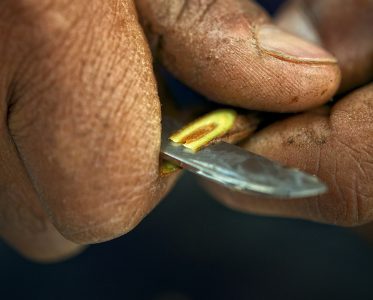
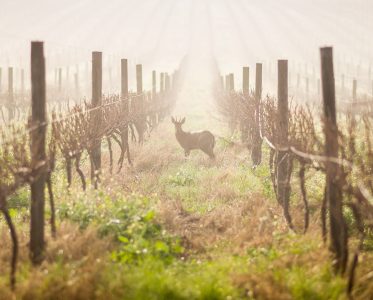
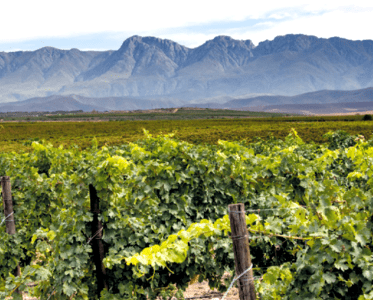
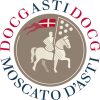







Reviews
“…Creating a good wine tourism experience requires work on three main points: connecting travellers with the destination’s history and tradition, strengthening gastronomy as one of the destination’s major assets, and generating abundant information about the destination. Wine tourism experts noted that high quality, varied supply, a historical narrative differentiating the destination from others, and activities for those not interested in wine are also important ingredients. Good examples of tourist destinations that are effectively attending to these aspects are South Africa and Napa Valley in the United States.”
“South Africa is probably one of the most exciting wine producers of the moment.”
“A wine lover’s dream.”